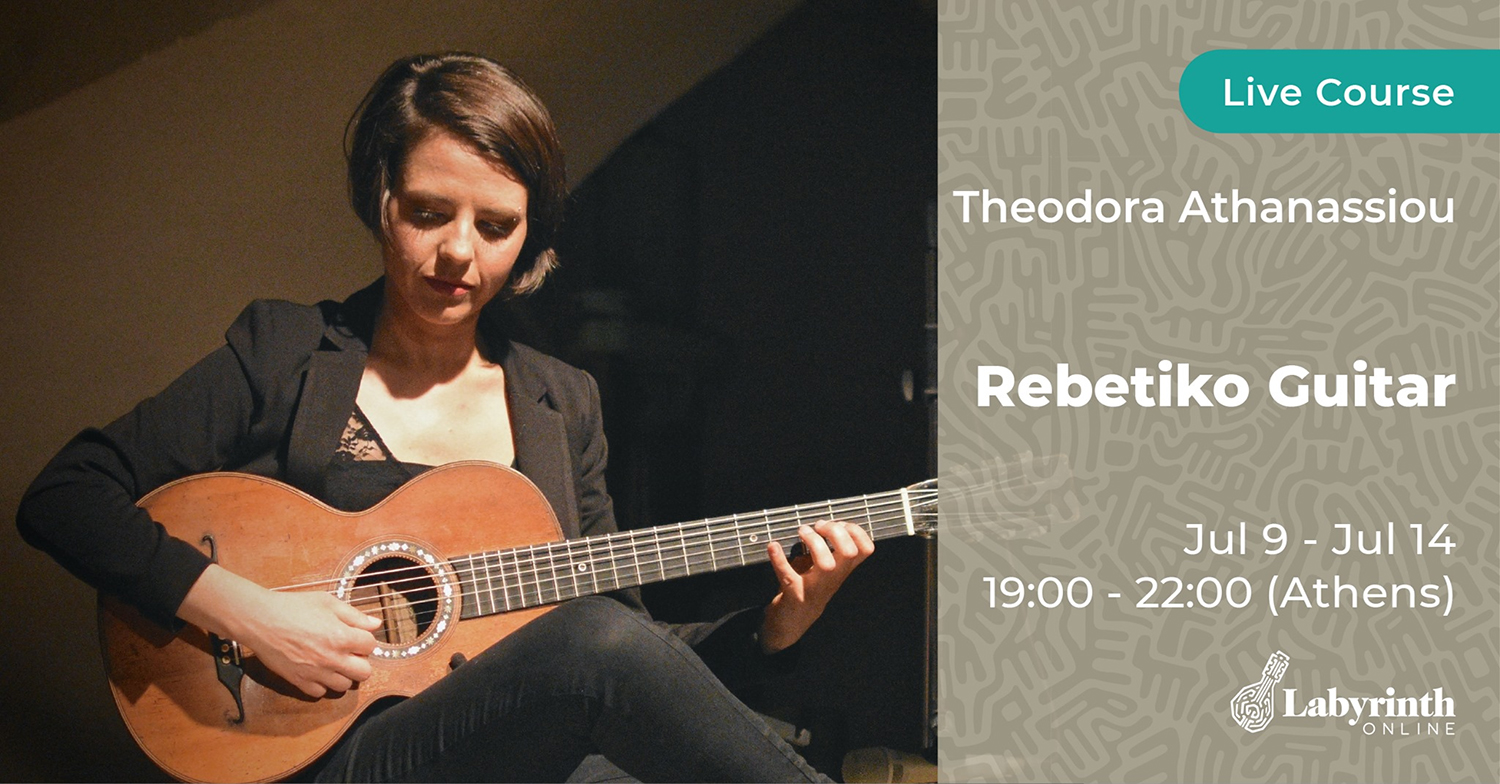
news
Live Course: Rebetiko Guitar with Theodora Athanassiou 7/2/21 – 3/3/21 (Labyrinth Online)
Labyrinth Musical Workshop: Seminar on Modal Guitar by Theodora Athanassiou
24-29 June 2019
Workshop on Modal Guitar @Labyrinth (Houdetsi, Crete)
In this course, participants will be part of a creative music team, open to all instruments, fretted and fretless, that mainly belong in “the family of Lutes”.
(more…)
Theodora Athanassiou Trio presents álfa steritikó @Cobra High Athens
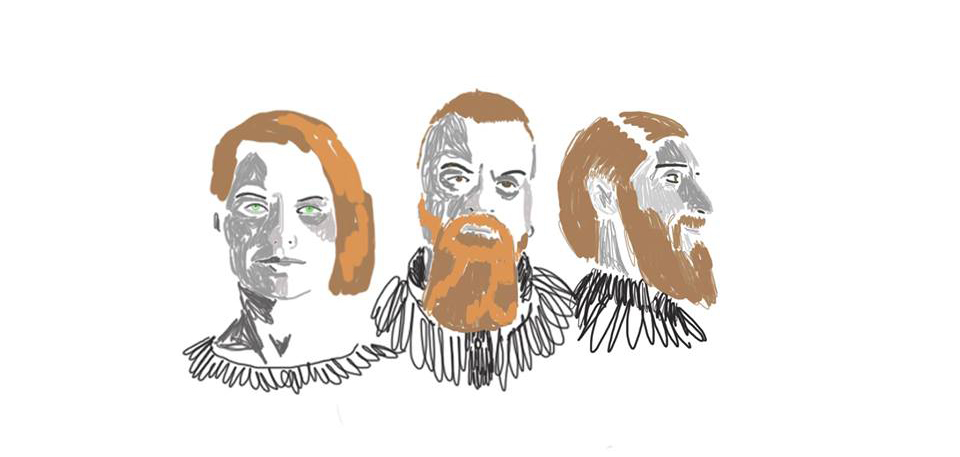
Thursday, 2/5 at 21:00 “álfa steritikó” will be at Cobra High Athens for a smooth concert with lots of music but almost.. no words…
Theodora Athanassiou – guitar
Andreas Andreou – oud
Loukas Metaxas – percussions
#3 for Kordelakia in the World Music Charts by Ethnocloud: Mediterranean
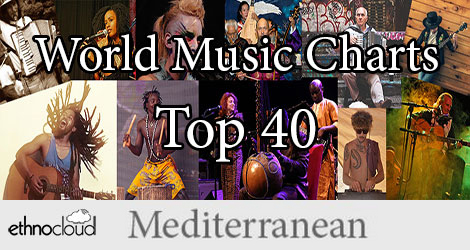
What a way to start a new month! The video of Kordelakia ranked #3 for April 2019, in the World Music Charts by Ethnocloud (category: Mediterranean)
(more…)
Theodora Athanassiou Trio presents álfa steritikó @six d.o.g.s
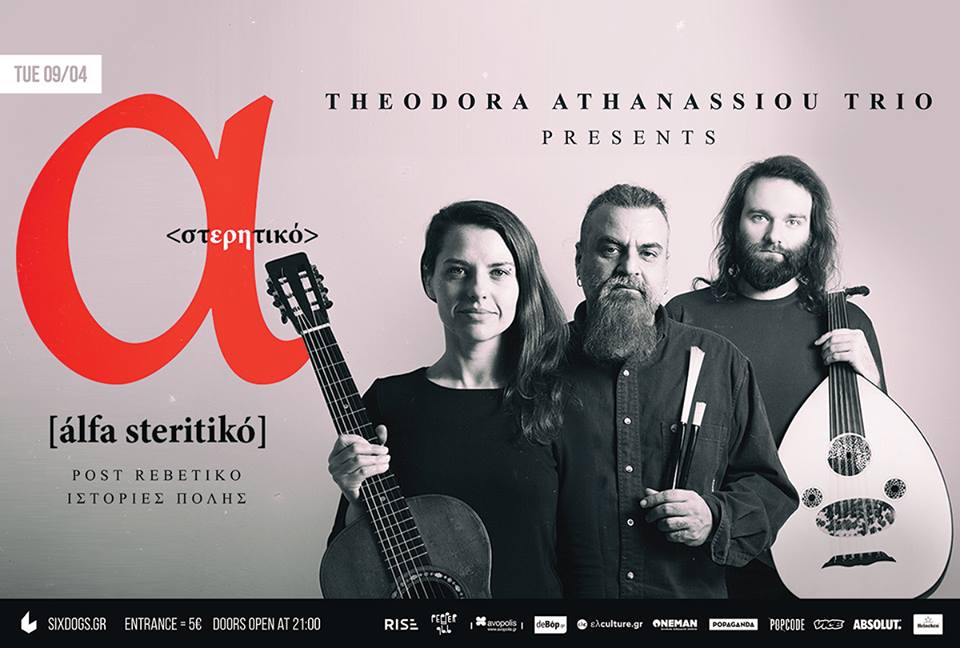
Theodora Athanassiou with her guitar, Taxiarchis Georgoulis with his oud and Loukas Metaxas with percussions, will meet on the 4th of April in the heart of Athens in a groovy experimental mood.
Doors at six dogs open at 21.00
Workshop @Music Village Bad Endbach Project, Germany
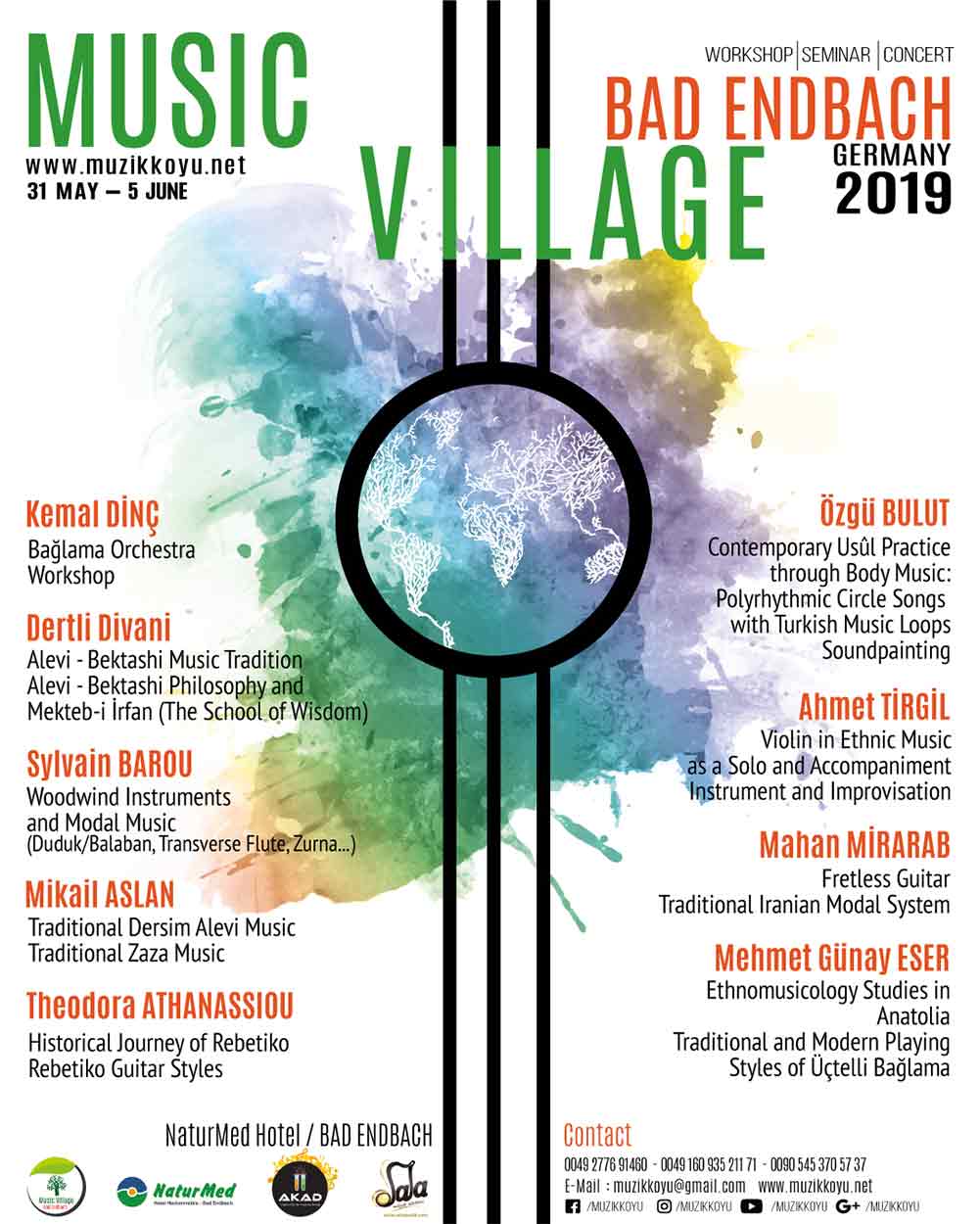
Turkey’s first Music Village is now also in Bad Endbach-Germany! Seminars, workshops and concerts of the Music Village will now be held in Germany as well.
Concert: alpha steritikó
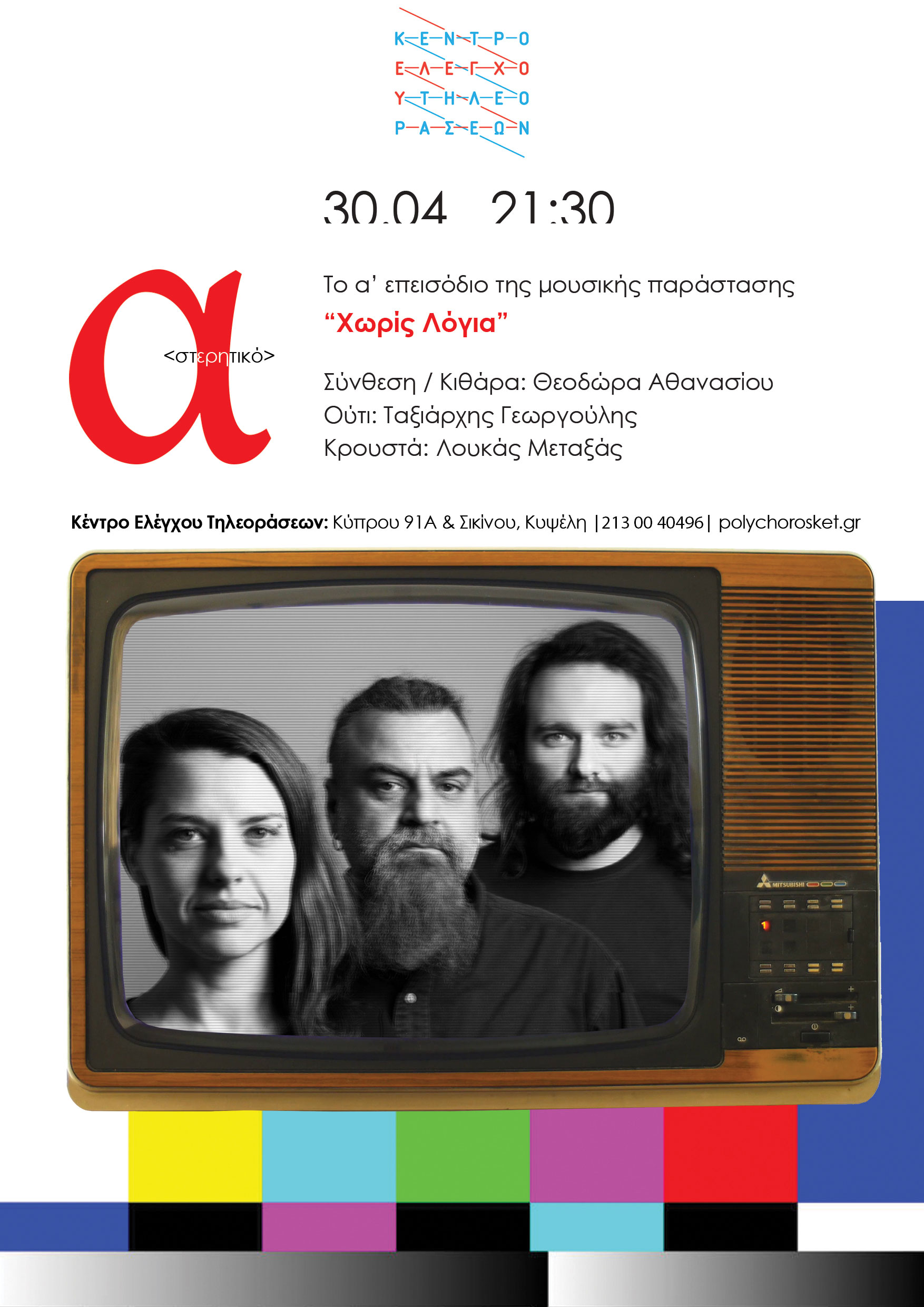
Taxiarchis Georgoulis – oud
Loukas Metaxas – percussions
steritiko (στερητικό) comes from the Greek verb: steroúmai (στερούμαι) which stands for being deprived of something or someone
“alpha steritiko” is a greek prefix. It’s the letter “a” that stands in front of a word
alpha steritiko @ TV Control Center
This concert will be the debut presentation of “Theodora Athanasiou Trio” launching a series of live music events that will lead and add to the main performance, called “No Words”. In this first concert there will not be many words to hear. Just three song. The rest will be just notes… Organic music, mainly from primary compositions
Seminar of Rebetiko music @Budapest
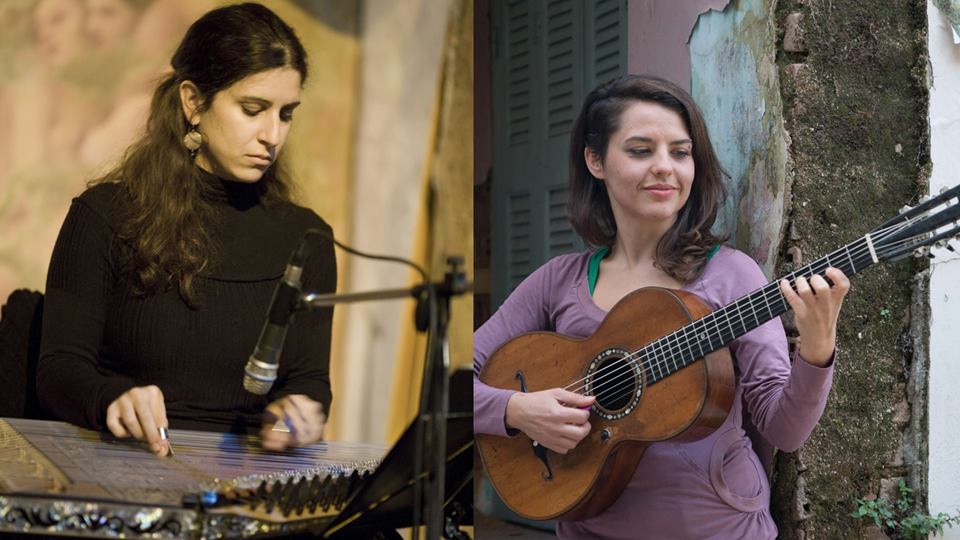
By Theodora Athanasiou and Sofia Labropoulou @Lumen Kávézó (Budapest)
Rebetiko, also known as the Greek blues, is a very rich music genre regarding the melodic and lyric content, because is both based on makam modal system (a complex modal construct which was brought to a high level of development under the Ottomans) but also strongly influenced by the eastern Mediterranean and Asia Minor music heritage. Rebetiko is a genre of music that offers to any musician a great chance to study standards for eastern and greek folk and urban music.
Saturday, 24 February 2018
17:00-19:00
2 hour lecture about Rebetiκo music (History, Periods, Styles and presentation of the most important representative artists and instruments of each style) and presentation of Kanun, Lafta and Folk style Guitar (description of their characteristic role in Greek Folk and Rebetiko music).
20:00 Concert of Rebetiko music with Theodora Athanasiou and Sofia Labropoulou
Sofia Labropoulou (kanun) and Theodora Athanasiou (vocals, guitar, lafta) present a crossover through Rebetiko music, “Cafe Aman” and contemporary personal compositions based on the Eastern Mediterranean music heritage. Two of the most renowned musicians in Greece that trust their musical insights and offer an amazing musical journey through the routes of Rebetiko.
Sunday, 25 February 2018
4 hour Seminar with Sofia Labropoulou and Theodora Athanasiou
Instrumental music of the tradition of Rebetiko (Practical Seminar)
11:30-13:30
30 min break
14:00-16:00
The seminar will be focused on instrumental compositions from the Rebetiko tradition. It is being referred to musicians and instrument players of all levels).
Music Seminar: Accompaniment in Modal Music
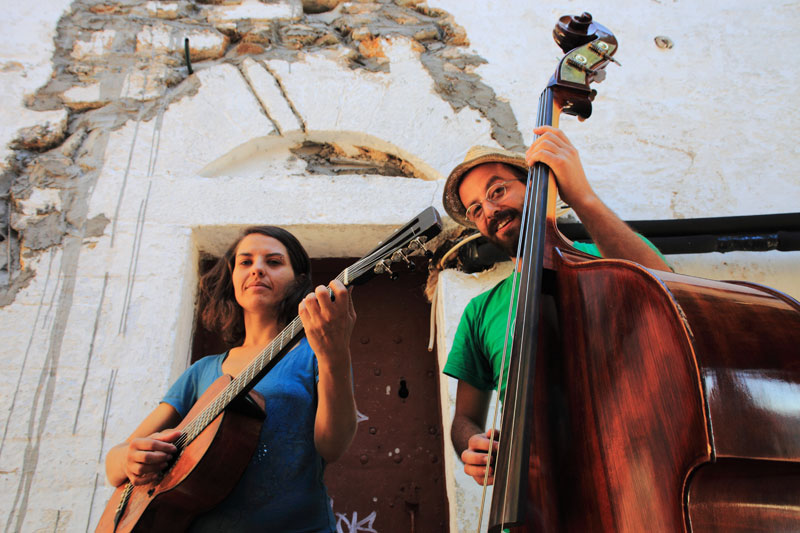
By: Theodora Athanassiou & Pavlos Spyropoulos
The seminar intention is to study and highlight accompaniment as a living and inalienable component of the art of music focusing primarily on its relevance to the modal musical traditions of the southeast Mediterranean.
Given that in the context of the musical idioms in question the melodic line has a singularly powerful presence, many players of what we might call accompanying instruments have a tendency to concentrate almost entirely on the melody itself, with the intention of improving to the best of their ability its rendition, whilst simultaneously not paying enough attention to other accompaniment possibilities which could potentially work more effectively in support of a composition or an improvisation. It is exactly this observation which serves as the starting point for this seminar which employs two instruments frequently encountered in an accompanying role in almost all of the musical idioms (folk and “classical”) of the broader region: the Guitar and the double bass.
